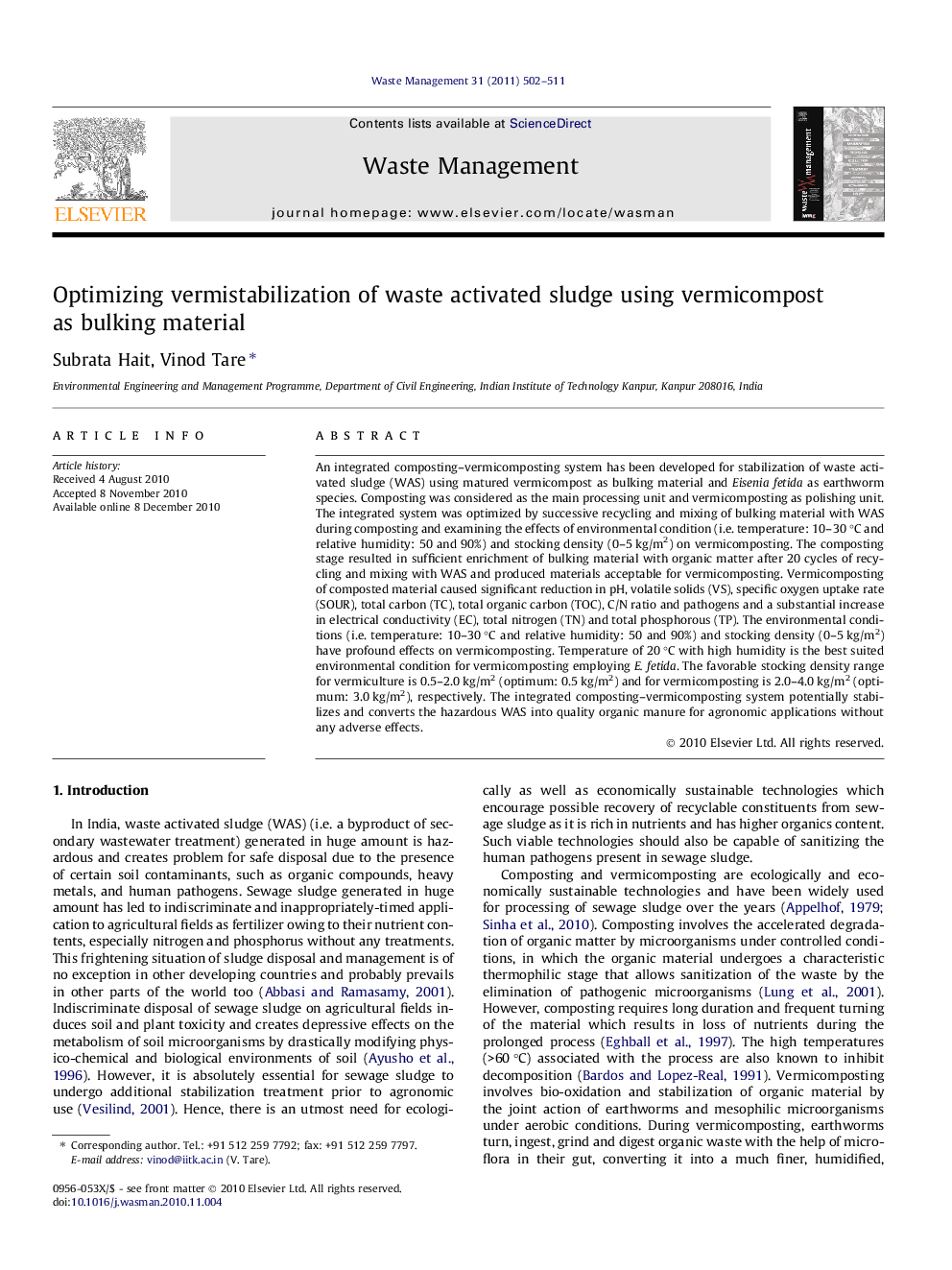| کد مقاله | کد نشریه | سال انتشار | مقاله انگلیسی | نسخه تمام متن |
|---|---|---|---|---|
| 4472607 | 1315073 | 2011 | 10 صفحه PDF | دانلود رایگان |

An integrated composting–vermicomposting system has been developed for stabilization of waste activated sludge (WAS) using matured vermicompost as bulking material and Eisenia fetida as earthworm species. Composting was considered as the main processing unit and vermicomposting as polishing unit. The integrated system was optimized by successive recycling and mixing of bulking material with WAS during composting and examining the effects of environmental condition (i.e. temperature: 10–30 °C and relative humidity: 50 and 90%) and stocking density (0–5 kg/m2) on vermicomposting. The composting stage resulted in sufficient enrichment of bulking material with organic matter after 20 cycles of recycling and mixing with WAS and produced materials acceptable for vermicomposting. Vermicomposting of composted material caused significant reduction in pH, volatile solids (VS), specific oxygen uptake rate (SOUR), total carbon (TC), total organic carbon (TOC), C/N ratio and pathogens and a substantial increase in electrical conductivity (EC), total nitrogen (TN) and total phosphorous (TP). The environmental conditions (i.e. temperature: 10–30 °C and relative humidity: 50 and 90%) and stocking density (0–5 kg/m2) have profound effects on vermicomposting. Temperature of 20 °C with high humidity is the best suited environmental condition for vermicomposting employing E. fetida. The favorable stocking density range for vermiculture is 0.5–2.0 kg/m2 (optimum: 0.5 kg/m2) and for vermicomposting is 2.0–4.0 kg/m2 (optimum: 3.0 kg/m2), respectively. The integrated composting–vermicomposting system potentially stabilizes and converts the hazardous WAS into quality organic manure for agronomic applications without any adverse effects.
Research highlights
► Integrated composting–vermicomposting system for better management of sewage sludge.
► Nutrients-rich vermicast suitable as organic fertilizer due to complete sanitization.
► Use of fresh vermicompost as bulking agent eliminates the need of external material.
► Temperature of 20 °C with high humidity is best suited condition for Eisenia fetida.
► Optimum stocking density for vermiculture: 0.5 kg/m2 and vermicomposting: 3.0 kg/m2.
Journal: Waste Management - Volume 31, Issue 3, March 2011, Pages 502–511